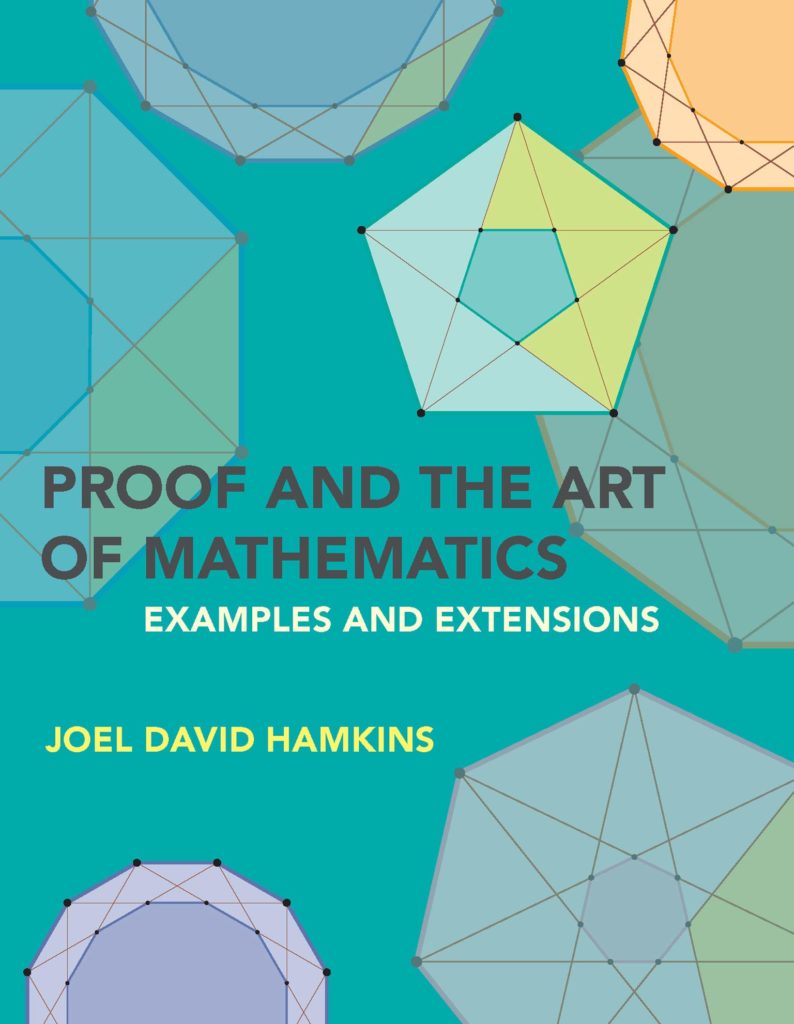My book, Proof and the Art of Mathematics (MIT Press 2020), has been awarded the 2024 Daniel Solow Author’s Award by the Mathematical Association of America.
The MAA asked me to write a brief response to receiving the award…
One of the great pleasures for any mathematician is to share the fascination and wonder of mathematics with those who are eager to learn it—to teach aspiring mathematical minds the art of mathematics, watching as they bend the logical universe to their purpose for the first time. They bring one idea into reactive contact with another, and we observe a carefully controlled explosion of insight, an Aha! moment, the natural consequence of clear and correct mathematical proof. What a joy it has been for me to experience these moments with my students using my book Proof and the Art of Mathematics, and I am truly honored by the recognition of the Daniel Solow award for this book. I am so glad to learn that others have understood so well what I was trying to do with the book and that they also have benefitted from it.
The book is filled with theorems, good solid theorems, theorems which even experienced mathematicians find compelling, but all of them are amenable to elementary proof. I find it an ideal context for teaching the craft of proof writing, showcasing a range of proof methods and styles. Many theorems are proved several times in completely different ways, using different argument methods that engage the problem from totally different perspectives. One thus realizes how a mathematician’s mind expands.
Every chapter ends with a discussion of various mathematical habits of mind, tidbits of wisdom on how to be a mathematician. State claims explicitly, not only for the benefit of your readers but for the clarity of your own conceptions. In your mathematical thinking and analysis, Use metaphor, which can provide a scaffolding of thought for otherwise difficult or abstract mathematical ideas. For mastery and insight, Express key ideas several times in different ways, thereby exploring your concepts more thoroughly. In every mathematical context, Have favorite examples, for they provide a playground of test cases to deepen understanding.
For a taste of the book, let me ask you: If two polygons have the same area, can you cut the first with a scissors into finitely many pieces that can be rearranged exactly to form the second? You’ll find out in chapter 10. What about a square and circle of the same area, allowing cuts along curves? What about higher dimensions?
The book has a supplementary text with many further examples and extensions of the ideas and discussion, including answers to all the odd-numbered exercises and more.
See also the nice announcement at Notre Dame.



